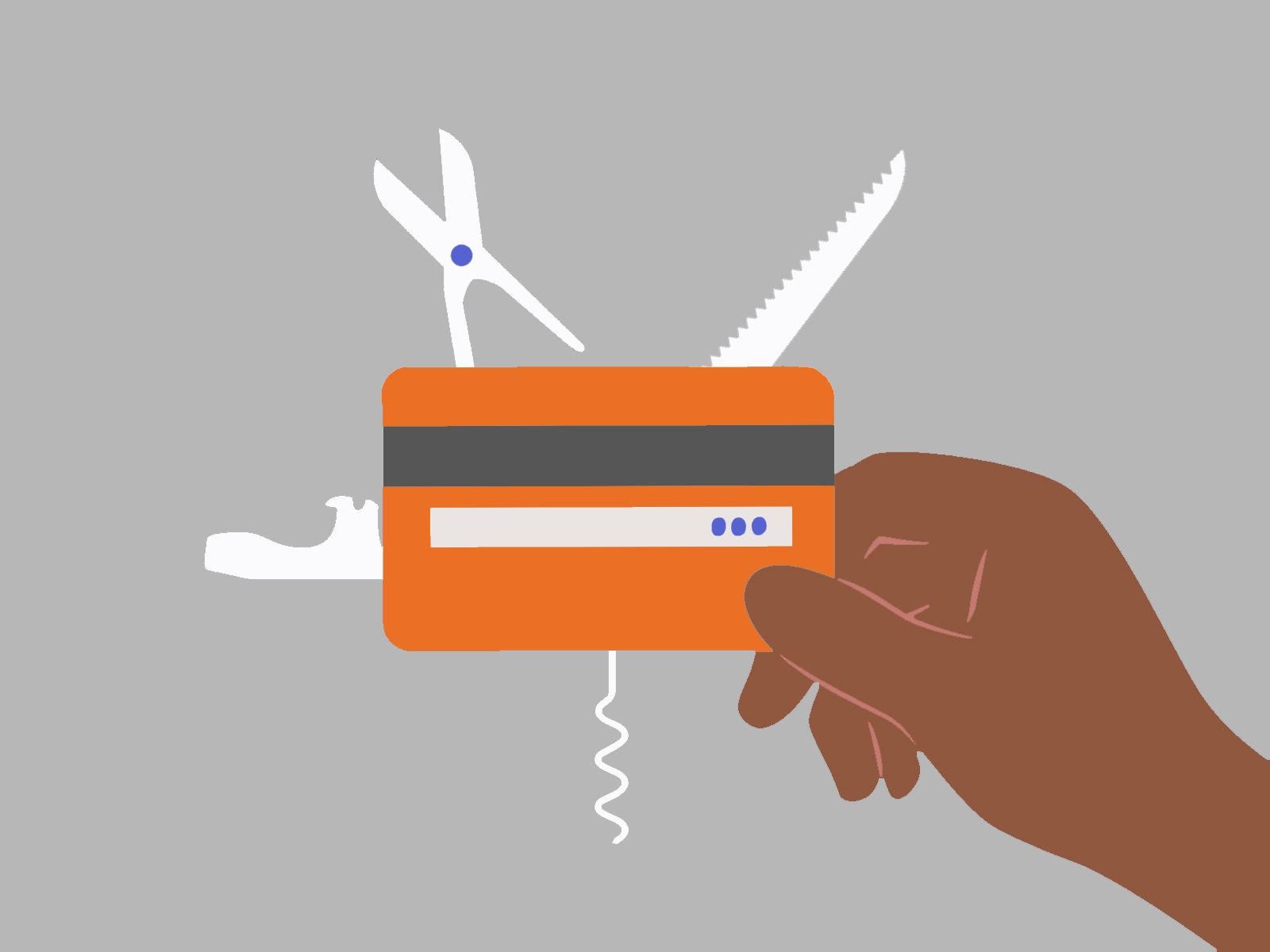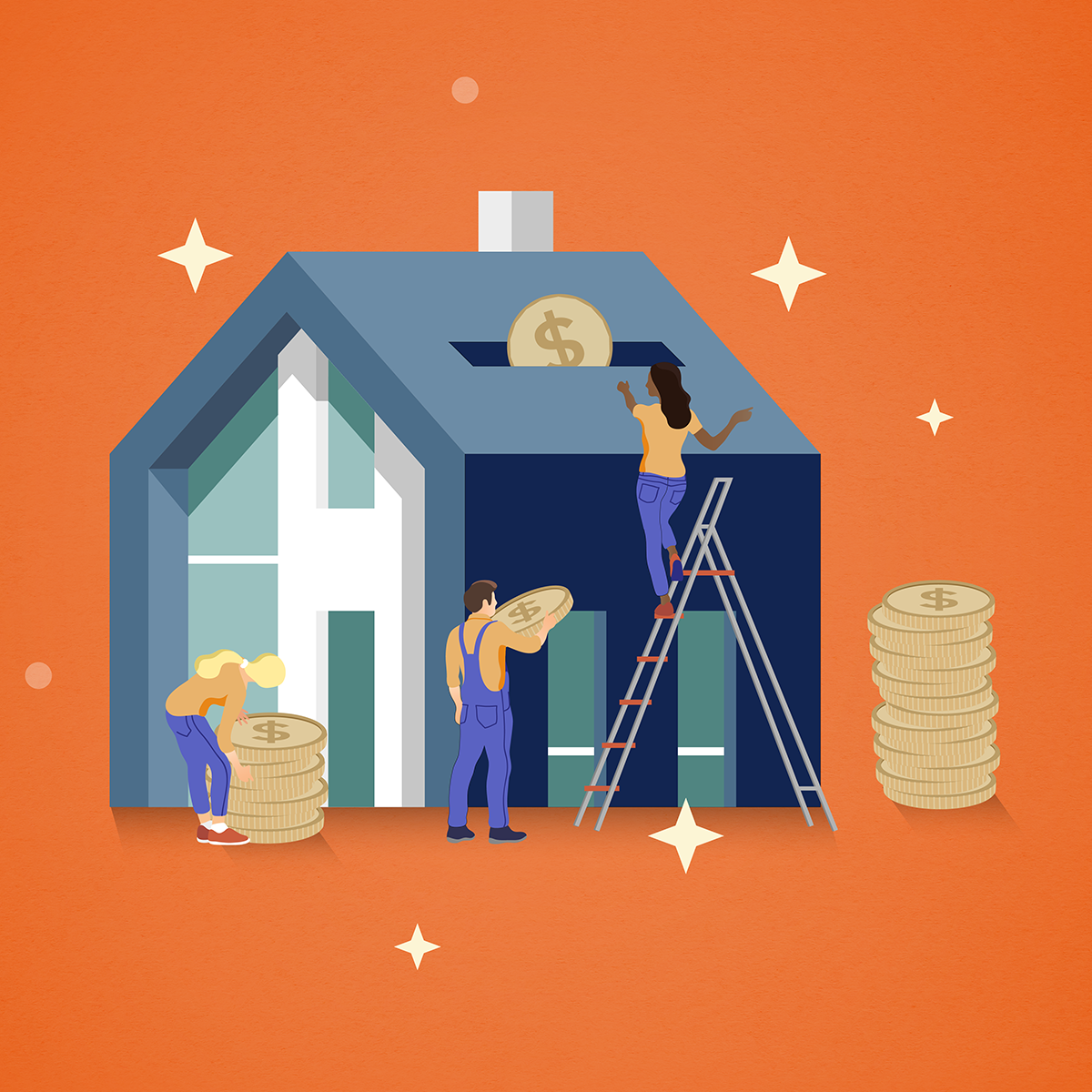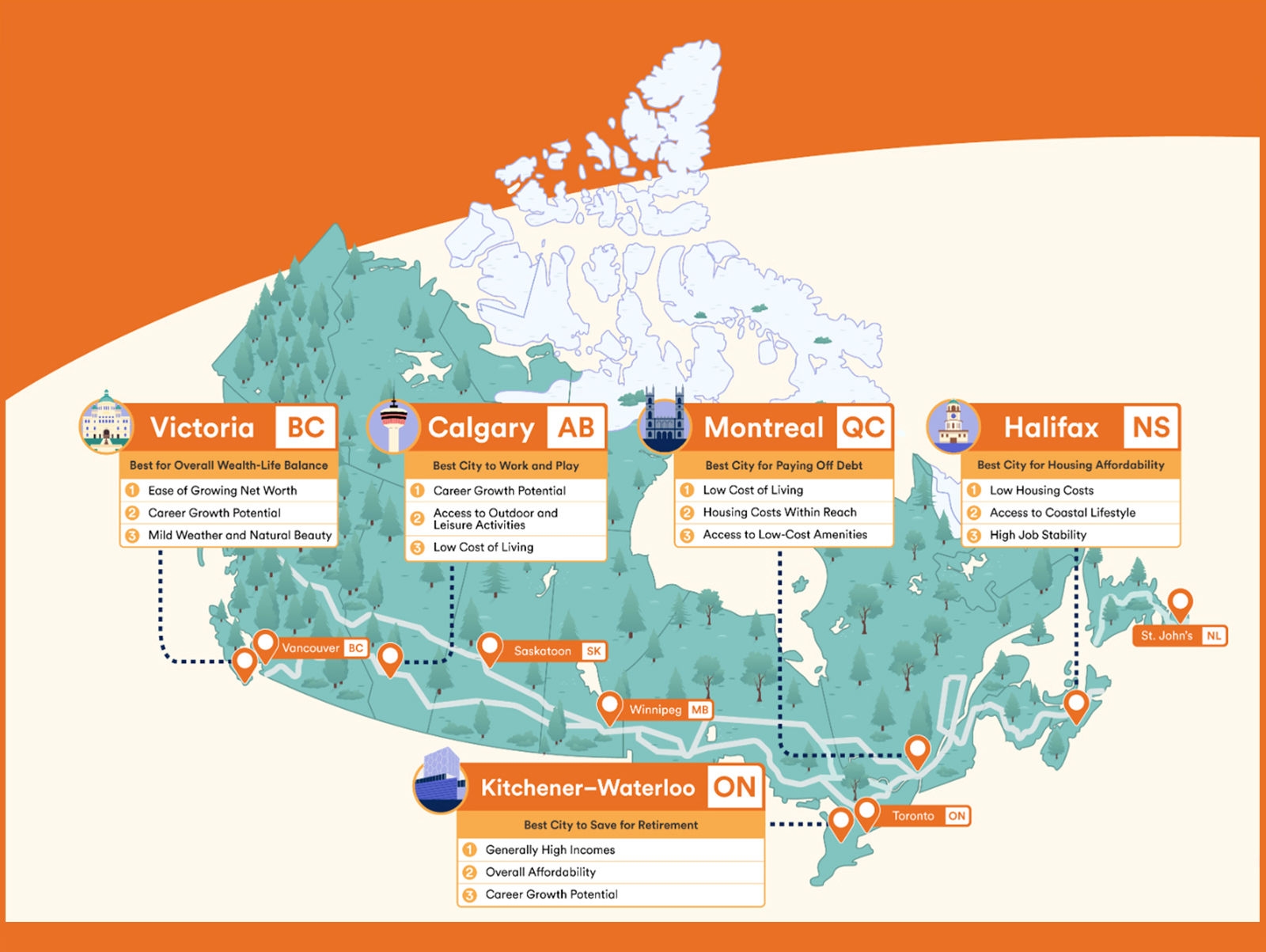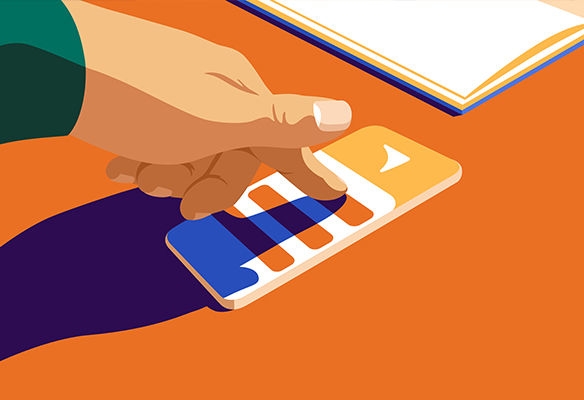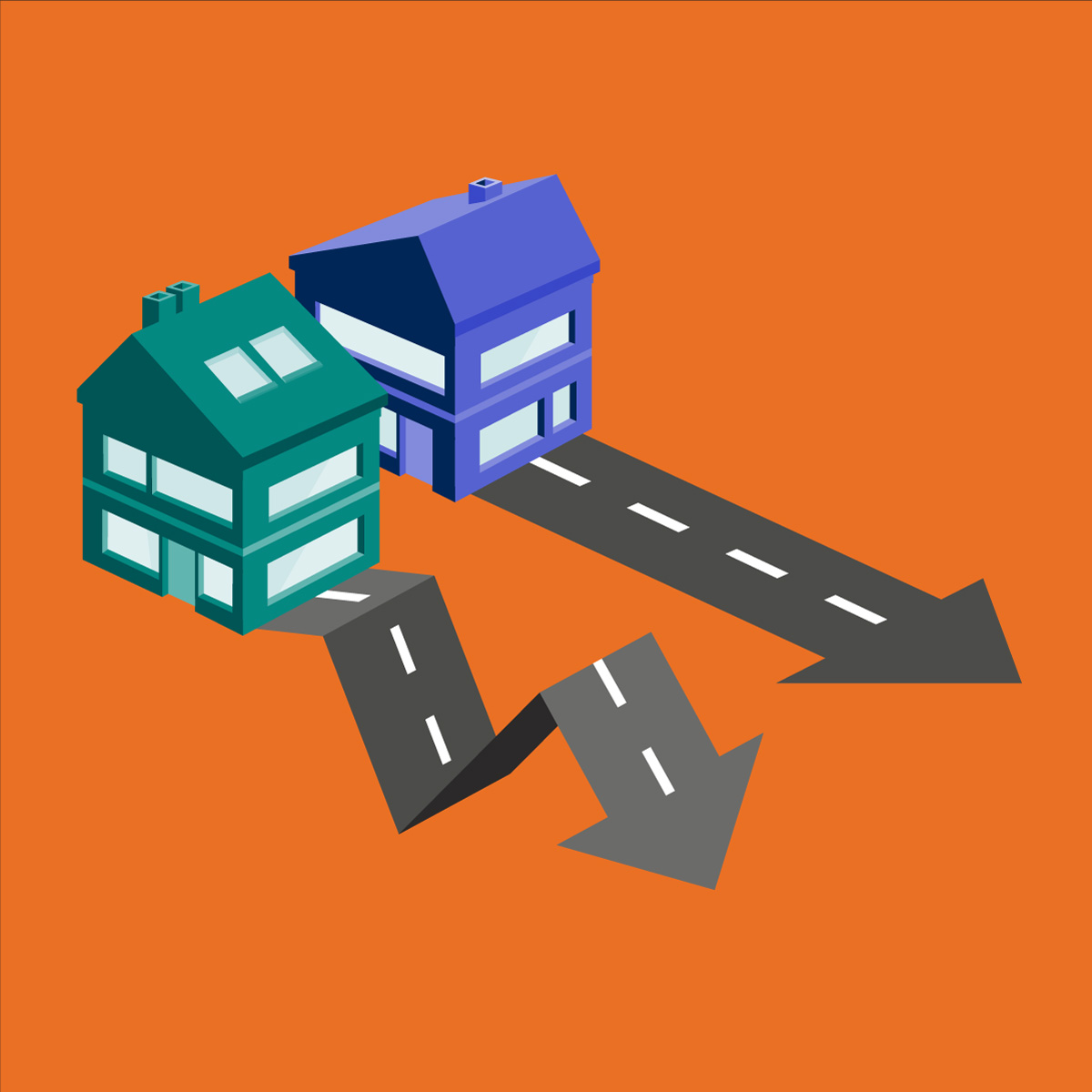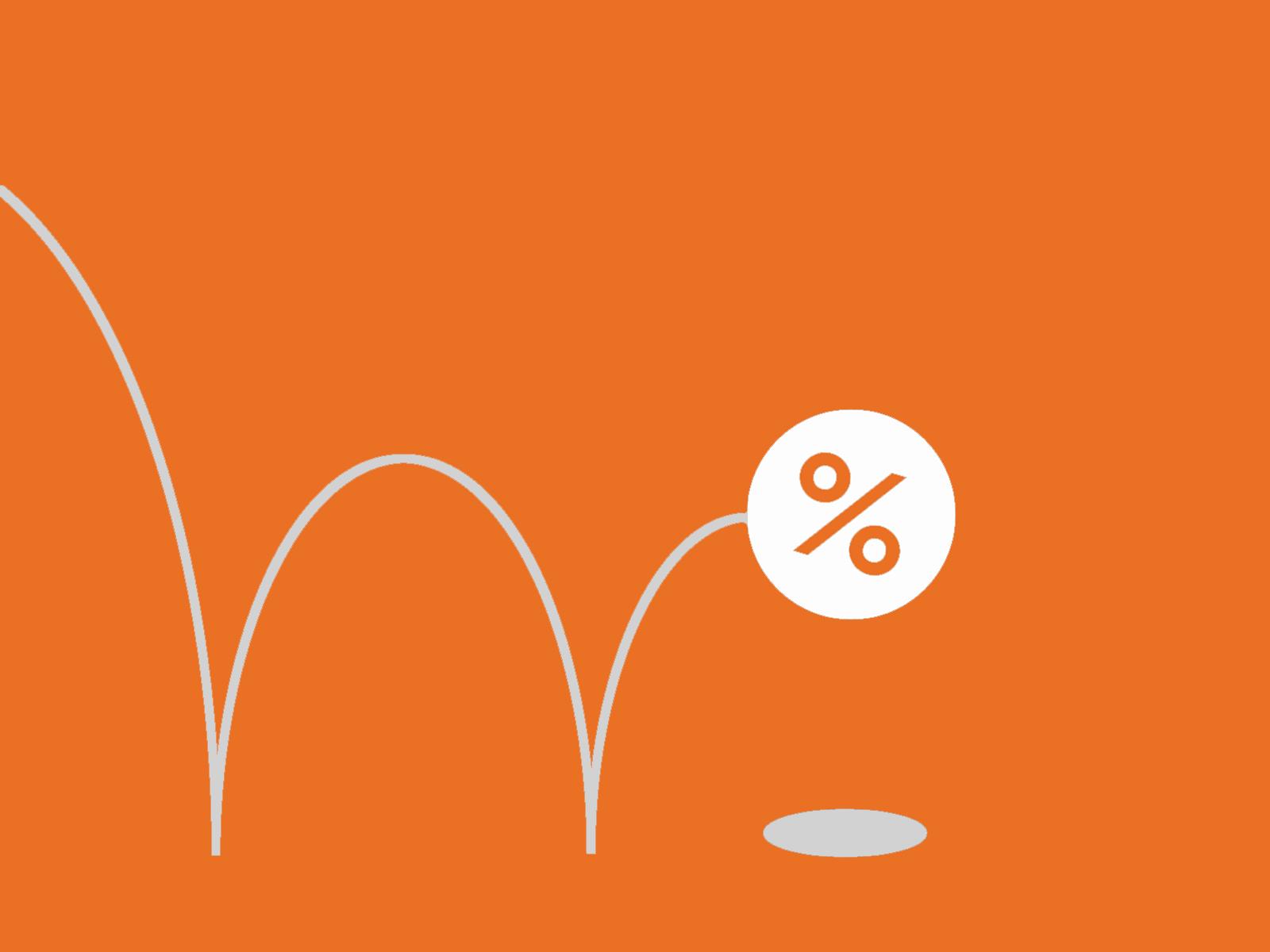Is renting a waste of money?
Money Myths is an occasional series where we evaluate common financial wisdom.
The claim: “Renting is a waste of money”
If you’ve spent any time on social media lately, you may have noticed a resurgence of the old-age debate about renting versus buying a home.
But now, there seems to be a shift in the conversation: the value of homeownership, not renting, is being questioned. Why? A few possible reasons stand out:
- As prices soar, owning a home has become out of reach for many.
- Homeownership comes with hidden costs, including insurance, property taxes, maintenance fees, repairs and more.
- Renting, while saving and/or investing the money you would have used on a downpayment and other home costs, is considered by some an attractive alternative.
So, is renting a waste of money? Is buying a home a waste of money?
“It all depends on your situation,” explains George Kibalian, a mortgage educator and senior manager at Tangerine.
“If what you are paying in rent is similar to what you would pay every month toward a mortgage, property taxes, fees, etc., then you might consider buying. Do the math on what you can afford, since you wouldn’t want to be house rich and pocket poor.”
Overall, “the decision depends on, among other factors, where you live, how long you plan to stay in the home, and what goals you have.”
For some, renting is what works for the short-term as they put away money each month with the longer-term goal of buying a home.
For others, homeownership is not part of their Canadian dream, and they’d rather grow their savings and investments over the long-term rather than put it all in a mortgage and other ongoing ownership costs.
Besides, in major cities like Vancouver, Calgary, Toronto and Montreal, home prices have become increasingly out of reach in comparison to the suburban or rural areas. And there’s also a demographic of people who use tenants or short-term rentals to help cover their ownership costs.
Whatever path is set out in front of you, it’s important to understand the risks, rewards and how to navigate in this economic climate.
The facts about renting vs. owning
Over the past couple of years, home prices have decreased a little as the market has cooled. The cost of renting has also been dropping.
Renting |
Owning |
|---|---|
In May to June 2025, the national average rent for a two-bedroom residence was $2,198.75
|
If you purchase a $700,000 home with a 20% downpayment, with a mortgage rate of 4.5%, your monthly payment will be $3,099.* |
In major cities, rent for two-bedroom apartments declined by 2% to 8% year-over-year. |
In May 2025, the national average home price was $691, 291. Major cities are much higher, with Toronto at $1.1 million and Vancouver between $1.2-$1.3 million. |
*Assumes a $560,000 mortgage, amortized over 25 years, with a monthly payment at a fixed interest rate of 4.50%.
If you’re a renter, chances are you’ve heard this argument from friends and family again and again: “You’re just paying someone else’s mortgage!”
It’s not that it’s false – the money you pay may well be helping your landlord cover their mortgage – but it’s not the whole story.
It ignores the advantages of renting and some of the hidden costs of owning a home. Is your dishwasher broken? Need a new furnace or roof? Just call the landlord.
There are a lot of pros and cons with both renting and owning, so let’s break them down.
Pros and cons of renting a home
Pros
🙂 Skip the stress of maintenance: Landlords deal with maintenance issues related to appliances, plumbing, heating, cooling and electrical – which means you don’t have to. According to MoneySense, homeowners typically spend 3-5% on maintenance every year.
🙂 Fewer costs: Homeowners pay property taxes, which tend to go up over time, and insurance. Insurance for renters tends to be cheaper. Overall, monthly costs for renters are more predictable and your landlord can only raise your rent within a legal limit in most jurisdictions.
🙂 Extra funds to invest: A downpayment is a lot of money. This large sum could otherwise be saved up or put into investments that have the potential to grow over time.
Cons
☹️ Unresponsive landlords: When you rent, you’re entering a landlord-tenant legal relationship, which means you’re reliant on someone else to keep the property fit for living. While the situation can be mutually beneficial, a bad landlord who doesn’t fulfil their end of the bargain can turn renting into a big headache.
☹️ No equity: Renters pay to use the space rather than own it, which means monthly rent payments go to the landlord rather than towards building equity in their own property. For many middle-income families, their home equity is a major component of net worth and acts as a key pillar of financial security. Homeowners may also be able to borrow against the equity in their home for unexpected needs or expenses.
☹️ Uncertainty of tenure: A downside of renting is that a landlord may decide to renovate, sell or move in themselves, leaving you on the hunt for new accommodation. “Renovictions” have become such an issue lately that Toronto recently passed a bylaw to crack down on the practice.
Pros and cons of buying a home
Pros
🙂 Build equity over time: One of the main benefits of homeownership is that as you pay off your mortgage, you are increasing your ownership stake in the home. Once it’s paid off, hopefully by the time you retire, you fully own the home and those onerous mortgage payments have stopped.
🙂 No landlord: Paint that wall pink and set up a doggie playground! When you own, you have more freedom to make changes to the space (within reason if you’re in a condo). There’s sense of stability that can come with home ownership when it comes to customizing your space.
🙂 Reduce monthly expenses in retirement: Owning a home outright by retirement age means you’ll no longer have a mortgage, which can help significantly with your monthly costs. There’s also the opportunity to sell your home/downsize to free up cash to boost savings.
Cons
☹️ Reduced flexibility to move: If you want to relocate, you probably need to sell or rent out your home. This can be a long and costly task, especially if there are repairs to be done beforehand.
☹️ Big upfront costs: Buying a home typically involves a 20% downpayment (less than that requires mortgage loan insurance). On a $700,000 home, that’s $140,000, which doesn’t include closing costs (taxes, lawyer fees, title insurance). And then there’s inspection, cleaning and moving costs to consider as well. High entry costs to buying a home can prevent people, especially first-time buyers, from entering the market.
☹️ Higher monthly costs: A new mortgage is usually much higher than monthly rent of the same property. Monthly fees when owning include mortgage, taxes, insurance, potentially mortgage insurance (if the down payment was under 20%), and potentially condo fees. This also doesn’t include any unexpected maintenance and repairs costs as well.
Pros and cons of renting while owning
Pros
🙂 Lifestyle flexibility: Owning a home in a big city can be super expensive, but there are ways to make it work. There are some who choose to rent in the city while owning in a smaller town to stay close to work and a bustling downtown environment. And, of course, many homeowners rent out part of their home, such as a basement, to help cover their costs, or use short-term rentals such as Airbnb.
🙂 Smaller upfront costs: Buying in smaller cities or rural areas often means a lower purchase price, which can help you get your foot in the door of homeownership. For those renting out part of their home to a tenant, that means getting regular income to supplement your mortgage.
🙂 Flexibility: Those who own in a smaller town while renting in the big city have more freedom to relocate, downsize or even upsize their primary residence.
Cons
☹️ Double housing costs: Although you have someone renting the property you own, ultimately you are responsible for the mortgage. Therefore, you’ll need to account for vacancy risk and juggling the cost of both rent and mortgage if a tenant moves or doesn’t pay unexpectedly. An emergency fund is a must.
☹️ Tenant hassles: Being a landlord is a big responsibility that comes with legal obligations, property management and financial risk. Having a solid grasp of landlord-tenant laws is important to navigate and mitigate issues that may arise.
☹️ Harder to qualify for loans: Before a lender decides to you give you a loan they calculate your debt-to-income (DTI) ratio. If you’re paying both rent and a mortgage, your DTI will be higher than if you were just renting or just owning. This may make lenders cautious and requires extra sound financial planning if you hope to be able to apply for more credit in the future.
So, what's the verdict?
False. As a general rule, renting is not a waste of money.
It just depends on what you want for yourself and your future, and not everyone wants the same thing.
For some, renting is the only option, while others see the benefits of renting while putting aside money for a downpayment.
Some would rather not buy at all and instead grow their money with different savings and investments, while others want to own investment property outside of the area they live.
Whatever path you’re on, just make sure to crunch the numbers and do some planning to make sure you’re making the right financial moves for today and tomorrow.
Uncomplicate your mortgage
Don’t stress over the numbers and calculations – we’re here to help you find the right Mortgage for your needs.

